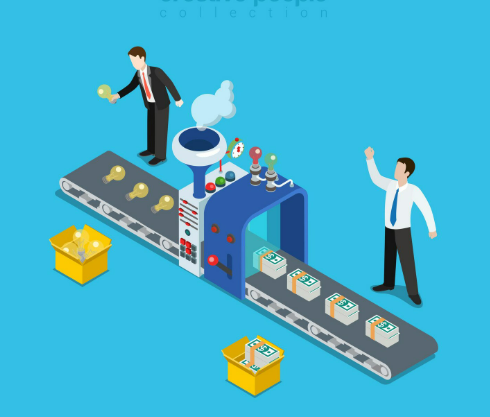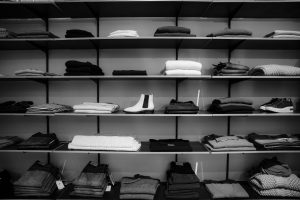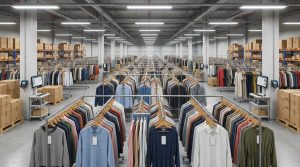The fashion industry is changing. More brands are moving away from mass production toward smaller, personalized collections. In fact, U.S. private label industry sales jumped to $271 billion in 2024, a 3.9% increase year over year.
Today’s shoppers want individuality; they prefer brands that reflect their values, lifestyle, and identity.
This is where private label fashion comes in. Instead of selling pre-made garments, brands now design their own collections through private label clothing manufacturers. This approach allows them to control product design, quality, and profit margins while offering something unique to their audience.
Private label manufacturing gives emerging labels, e-commerce startups, and boutique brands the freedom to create exclusive designs and grow faster, all while maintaining brand authenticity.

The Shift in Modern Fashion
The rise of direct-to-consumer (DTC) models has changed how fashion brands operate. Instead of depending on large retail chains, many now connect directly with shoppers through online stores, social media, and e-commerce platforms. This model gives brands full control over pricing, customer experience, and storytelling. These three key elements shape long-term brand loyalty.
Consumers today want transparency and authenticity. They prefer brands that communicate openly, share their production values, and reflect personal identity. This is why many modern labels have embraced private label fashion, a model that supports creativity and customization at every step.
Brands like Gymshark, Everlane, and Alo Yoga have shown what’s possible. Each started with a focused vision and a small product range. Through private label manufacturing, they scaled production while keeping full creative ownership. Their success inspired a new generation of startups to take the same path, building their own identity instead of reselling existing designs.
This shift represents more than a trend; it’s a cultural change in how people connect with fashion. Shoppers now value originality and emotional connection over mass-market appeal. As a result, private label apparel brands are rising fast, empowering even small businesses to compete confidently with global fashion houses.
What Is Private Label Manufacturing?
Private label manufacturing is when a brand creates and sells its own clothing designs under its unique name, instead of reselling pre-made garments. The brand controls the creative vision, while an experienced custom clothing manufacturer handles the technical and production process.
This approach differs from white-label or wholesale models, where multiple brands sell the same generic pieces. In private label fashion, every product, from stitching to labeling, is made exclusively for one brand. This ensures originality, consistency, and stronger brand recognition.
The private label manufacturing process typically includes several key stages:
- Design Concept: The brand develops creative ideas using sketches, inspiration boards, or sample references.
- Tech Pack Creation: A detailed document outlines fabric types, colors, measurements, trims, and stitching methods to guide production.
- Sampling and Approval: The manufacturer produces a prototype for the brand to review, ensuring the fit and quality meet expectations.
- Production: Once approved, bulk manufacturing begins using advanced equipment and quality control systems.
- Branding and Packaging: Finished garments are labeled, tagged, and packed according to the brand’s specifications before delivery.
Through this process, fashion businesses can start their own clothing line with full creative control and reliable product quality. It allows new and established labels to turn design ideas into professional-grade apparel while building a unique identity in a competitive market.
Key Advantages of Private Label Fashion
According to Business of Fashion (2024), direct-to-consumer brands now represent over 30% of new fashion launches globally, driven by social media visibility and flexible manufacturing models. Let’s see its advantages:
1. Brand Identity and Exclusivity
Private label manufacturing allows brands to bring their creative vision to life. Every element, from fabric texture and color palette to stitch details and fit, can be customized to reflect the brand’s story. This level of personalization gives smaller brands a distinct identity that large, mass-market retailers can’t replicate.
By producing exclusive designs, brands strengthen their image and communicate authenticity. Consumers today prefer individuality over uniformity, and private label fashion gives them that—clothing that feels unique, intentional, and connected to a brand’s purpose.
2. Higher Profit Margins
Owning your designs gives you full control over pricing and brand positioning. Without depending on wholesalers or distributors, brands can keep a larger share of their revenue. Private label manufacturing also eliminates licensing costs and markups added by middlemen.
With better profit margins, fashion entrepreneurs can reinvest in areas that matter most: marketing, sustainability initiatives, or new product lines. This financial flexibility helps private label apparel brands grow strategically while maintaining independence.
3. Scalability and Flexibility
Private label production provides scalability without losing creative control. Once a brand establishes its manufacturing base, it can easily introduce new categories, from streetwear to athleisure, or even seasonal collections, while maintaining consistent quality.
Partnering with a reliable custom clothing manufacturer ensures smooth transitions between product types and efficient production planning. Whether the goal is to launch small batches or expand into large-scale retail, private label fashion offers brands the flexibility to adapt to market trends quickly.
4. Stronger Customer Loyalty
Customer loyalty grows when buyers feel emotionally connected to what they wear. Exclusive, thoughtfully designed pieces make customers feel part of a brand’s community rather than just buyers of a product.
Private label brands that focus on storytelling, quality, and fit often see higher repeat purchase rates. This trust and familiarity encourage long-term relationships, turning first-time buyers into loyal brand advocates, a key factor in sustainable business growth.
How the Custom Manufacturing Process Works

Building a private label collection is a structured yet creative process that transforms a concept into a ready-to-sell product. Every stage is designed to ensure consistency, quality, and brand identity.
1. Concept and Design Discussion
The journey begins with defining the brand’s vision. Designers and brand owners outline their goals, target audience, and desired style direction. This stage often includes creating mood boards, sketches, or digital mockups to express the collection’s theme, color palette, and silhouette. Clear communication with the manufacturer at this point ensures that both design intent and production feasibility align perfectly.
2. Fabric Sourcing and Sampling
Next, manufacturers assist with fabric selection and sampling. The right material determines the look, comfort, and performance of the final product. Whether it’s organic cotton, recycled polyester, or moisture-wicking blends, choosing quality fabrics that match the brand’s price range and sustainability goals is key. Samples are produced for review so that brands can test feel, durability, and fit before moving to full production.
3. Pattern Development
Once fabrics and designs are approved, pattern makers translate sketches into technical blueprints. These patterns guide how each garment is cut and sewn. Attention to detail at this stage ensures a perfect fit, proportional grading across sizes, and consistency between prototypes and the final batch.
4. Production and Quality Assurance
With approved patterns and samples, production begins. Skilled technicians handle cutting, stitching, printing, embroidery, and finishing, depending on the design. During this stage, strict quality control checks are performed at multiple levels to guarantee accurate stitching, correct labeling, and defect-free garments. Many private-label clothing manufacturers also provide video or photographic updates during production for transparency.
5. Labeling, Packaging, and Delivery
Finally, garments are branded with custom labels, tags, and packaging that reflect the brand’s identity. Eco-friendly packaging options are increasingly popular among modern apparel brands. Once the order passes the final inspection, it’s shipped to the client’s location — ready for retail, e-commerce, or distribution.
This detailed process ensures brands retain creative control from concept to delivery. With the expertise of professional private label manufacturers, even first-time designers can build collections that meet international quality standards and resonate with customers across the USA.
Sustainability and Quality as Competitive Advantages
Consumers are now more eco-conscious than ever. According to a McKinsey report, 67% of consumers consider sustainable materials an important factor when buying apparel.
Private label production supports this shift by allowing brands to choose ethical sourcing, low-waste manufacturing, and eco-friendly fabrics. Smaller batch production also reduces excess inventory and environmental impact.
In short, private label fashion helps brands align profit with purpose, creating quality garments while building consumer trust.
Traditional vs. Modern Fashion Manufacturing
|
Aspect |
Traditional Manufacturing | Private Label Manufacturing |
| Design Ownership | Limited |
Full Creative Control |
|
MOQ (Minimum Order Quantity) |
High | Flexible |
| Product Exclusivity | Shared across brands |
100% Exclusive |
|
Time to Market |
Slow | Faster turnaround |
| Brand Identity | Generic |
Fully Customized |
The Future of Private Label Fashion
Technology is shaping the next phase of fashion manufacturing trends. From digital design tools to 3D sampling and on-demand production, brands can now create and launch new collections faster than ever.
As personalization continues to drive the industry, private label apparel brands will play a leading role. More small businesses and creators will use these modern tools to bring their unique designs to life, connecting directly with customers who value authenticity and creativity.
Partnering with Expert Manufacturers
To succeed in today’s competitive market, choosing the right manufacturing partner is crucial. Companies like Argus Apparel help brands transform ideas into premium-quality apparel through efficient, transparent production.
With expertise in private label clothing manufacturing, Argus Apparel supports global brands, startups, and DTC labels in achieving scalable, sustainable growth, one custom collection at a time.

Pallavi Singal is the Vice President of Content at ztudium, where she leads innovative content strategies and oversees the development of high-impact editorial initiatives. With a strong background in digital media and a passion for storytelling, Pallavi plays a pivotal role in scaling the content operations for ztudium’s platforms, including Businessabc, Citiesabc, and IntelligentHQ, Wisdomia.ai, MStores, and many others. Her expertise spans content creation, SEO, and digital marketing, driving engagement and growth across multiple channels. Pallavi’s work is characterised by a keen insight into emerging trends in business, technologies like AI, blockchain, metaverse and others, and society, making her a trusted voice in the industry.










